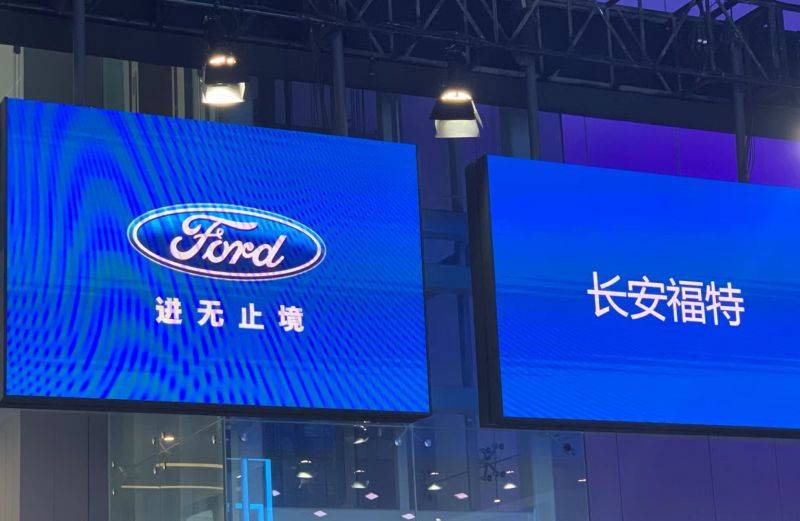Can Zhao Fei Reverse Changan Ford's Slumping Sales and Repair Its Tarnished Reputation?
![]() 11/19 2025
11/19 2025
![]() 559
559
【Text by/Depth Car Review & Financial Swordsmen Trio】On November 3, an update to Changan Ford's business registration information sent ripples through the automotive industry, which had seemed relatively calm—Zhu Huarong officially stepped down as chairman, and Zhao Fei, the former chairman of China Changan Automobile Group, stepped in to take charge. While this was a routine personnel change, it underscored the deep struggles Changan Ford is facing and the arduous path that lies ahead. With a new leader at the helm, the future remains uncertain.

Zhu Huarong's departure was more than a simple handover of responsibilities; it was an inevitable outcome following China Changan Automobile Group's direct supervision by the State-owned Assets Supervision and Administration Commission (SASAC) as a central enterprise. According to regulations, leaders of central enterprises are generally not permitted to hold positions in third-tier enterprises. As Changan Ford is a third-tier enterprise, Zhu's departure was inevitable. Although he stated his intention to focus on group-level strategic matters, this shift from "frontline player to strategic coach" appears more like a move driven by corporate difficulties, unable to conceal the severe challenges Changan Ford is currently facing.
The newly appointed Zhao Fei is widely regarded as the "best candidate" due to his extensive technical and managerial experience within the Changan system. He once drove a sales rebound as executive vice president of Changan Ford in 2018 during a crisis. However, the market environment then was vastly different from today's, and whether his past "market-saving achievements" can be replicated in the current complex landscape remains highly uncertain. After all, Changan Ford now faces not only declining sales but also the challenges of new energy transition and reputation damage, among others.
Changan Ford's former glory is now a distant memory. Data shows that this joint venture brand, which peaked at 958,000 units in sales in 2016, saw sales rebound to only 247,000 units in 2024, and further plummeted to 77,000 units from January to September 2025. In contrast, rival FAW-Volkswagen sold 1,659,100 units in 2024, creating a seemingly insurmountable gap. This vast sales disparity not only reflects Changan Ford's competitive disadvantage but also signifies its shrinking market share and increasingly narrow survival space.
The contraction of its fuel-powered vehicle (internal combustion engine vehicle) lineup is a key reason for Changan Ford's sales decline. Currently, Changan Ford offers only four fuel-powered vehicle models, including the Mondeo and Edge, significantly weakening its competitiveness in the fuel-powered vehicle market. In terms of new energy transition, Changan Ford is struggling and nearly falling behind. The independently operated Ford Mustang Mach-E has consistently sold in single digits, with nearly zero market share in the 250,000-350,000 yuan segment. The new energy joint venture established by Changan and Ford in 2023 is still refining its first product on the platform, while competitors like Volkswagen and Toyota have already completed their new energy product matrix layouts, leaving Changan Ford trailing at the starting line in the new energy race.
Early issues such as transmission failures in the Focus and axle breaks in the Kuga acted like ticking time bombs, severely damaging Changan Ford's brand image. These problems not only affected consumer experience but also raised doubts about product quality. The criticism from the CCTV 315 Gala further eroded consumer trust. In today's fiercely competitive automotive market, consumer trust is paramount, and once lost, it is extremely costly to regain. Changan Ford's accumulated reputation issues have become a significant obstacle to its recovery, often deterring consumers from purchasing its vehicles.
Changan Ford is currently under attack from all sides. Against the backdrop of joint venture brands' overall market share dropping to 31.5%, it faces pressure from both domestic brands' new energy models and intense competition from other joint venture brands. Domestic brands leverage new energy technology advantages and cost-effectiveness to seize market share, while other joint venture brands continuously innovate products and marketing strategies, engaging in fierce competition with Changan Ford.
Internally, although Changan Ford has seen some changes under the leadership of new leader Zhao Fei, such as new Executive Vice President Wang Xiaofei spearheading new energy product launches and engineering doctor Zhang Xiaoyu's technical vision empowering intelligent transformation, whether these initiatives can truly translate into market competitiveness remains highly questionable. After all, product development and launch require a lengthy process, and in such a fiercely competitive market, whether Changan Ford can swiftly introduce competitive new products and penetrate niche markets remains uncertain.
Although the industry has high hopes for Zhao Fei's return, believing his technical background and resource integration experience make him the right candidate to lead Changan Ford through current challenges, the issues it faces are systemic and deep-rooted, not easily solvable by one person or team. The declining trend of joint venture brands' overall market share means Changan Ford must achieve growth rates surpassing the industry average to break through. However, given its current shortcomings in products, markets, and reputation, achieving a turnaround in the short term seems nearly impossible.
Changan Ford's leadership change, while an attempt to break the deadlock, is fraught with uncertainty. In the fierce market competition, Changan Ford resembles a ship adrift in a storm, vulnerable to being swallowed by the waves. Although new leader Zhao Fei and his team are filled with enthusiasm and determination, given the complexity of the situation, whether they can turn the tide and lead Changan Ford out of its predicament remains a significant question mark. Perhaps Changan Ford's future remains shrouded in uncertainty, with a bleak outlook ahead.








